labor/economy
-
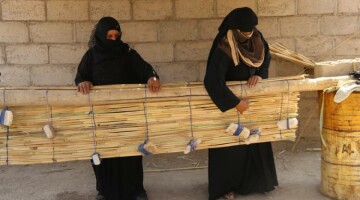
Women of Deir ez-Zur make handcrafted reed products
Products made of reeds have been used for decoration for years. Women of Deir ez-Zur make handcrafted reed products for a living.
-
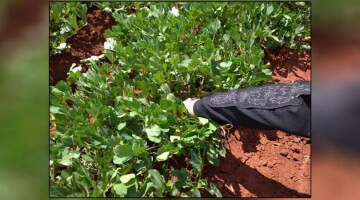
Migrant women in Idlib work in agriculture to earn their livelihood
Migrant women in Northern Syria try to make a living by working in agriculture.
-
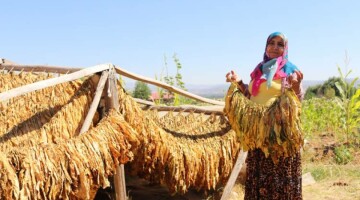
Reyhan Kırık makes a living by growing tobacco
Reyhan Kırık makes a living by growing tobacco. After drying tobacco leaves in the sun, she will sell them.
-
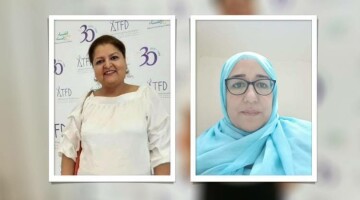
Tunisian women face workplace discrimination
Tunisian women say they face discrimination and harassment at the workplace. Men take more annual leave than women, men are paid more than women, and laws only remain on paper.
-
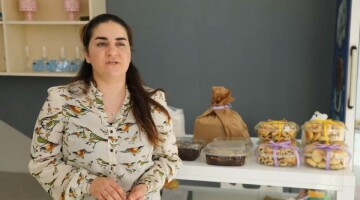
Women open restaurant called “Şajin” in Halabja
A group of women came together and opened a restaurant called “Şajin” in Halabja. The women serve homemade dessert and food at the restaurant.
-
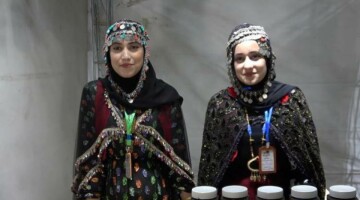
Pêncewîn Autumn Festival kicks off in Sulaymaniyah
Pêncewîn Autumn Festival kicks off in the Sharezûr town of Sulaymaniyah. Local products, handicrafts, and local dishes are exhibited at the festival. NuJINHA team attended the festival and spoke to two sisters about their natural products.
-
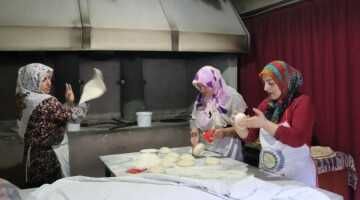
“Tandoor House” run by three women in Çêwlig becomes hope for women
Three women bake local bread in their “Tandoor House they opened in Çêwlig to have economic freedom. The Tandoor House become the hope for women living in the city and the people of the city prefer to buy bread made by these three women. Zehra Ataoğlu is one of three women and she tells us how they decided to open their bakery.
-
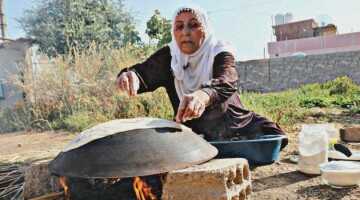
Delicous Kurdish bread: Nanê Heft Tewkê
“Nanê Heft Tewkê” is one of the different types of Kurdish bread. Nanê Heft Tewkê can be translated into English as “Seven layers bread”. Ferida Reşit living in Qamishlo told us how this bread is healthy and how she bakes it.
-
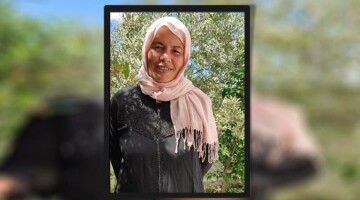
Zikra starts her chicken farm despite patriarchal pressure
“I resisted patriarchal mentality,” says Zikra Al-Saedani, who started her chicken farm even if male members of her family objected to her. She aims to expand her business now and calls on women to put their projects into practice.
-
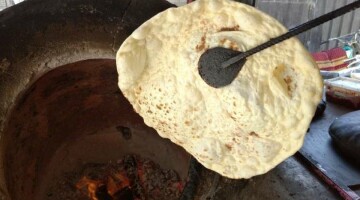
Poverty forces women of Idlib to bake tandoori bread
Bread baked in a clay oven is called tandoori bread. Baking tandoori bread has a long history and has been preferred by people for its taste. However, baking tandoori bread is not a choice but a must for the women living in the refugee camps of Idlib due to the poverty they face.
-
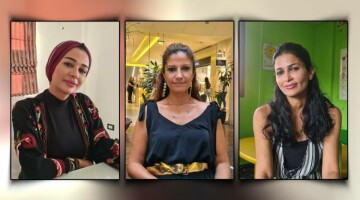
Schools reopen in Lebanon but people face high prices of school supplies
Schools in Lebanon have been closed for two years due to the Covid-19 pandemic. This year, the schools will reopen in the country but parents and students face high prices of school supplies as they are preparing for the new school year.
-
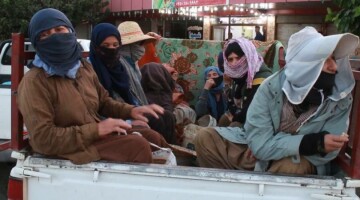
Women in Sharazoor start working before sunrise: We are exploited
Women of Sharazoor come together before sunrise to pick fruits and vegetables. “We are exploited but we have to work in order not to depend on others,” say women, who draw attention to the massacres that took place during the Saddam Hussein era and the current inadequate policies.
-
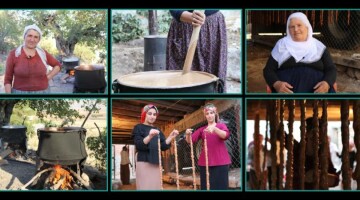
Grape harvest season begins in villages
At the end of summer, the villagers begin to go to their vineyards but this year they are complaining about the heat damage on grapes. After picking grapes, they make grape molasses, churchkhela, or grape juice.
-
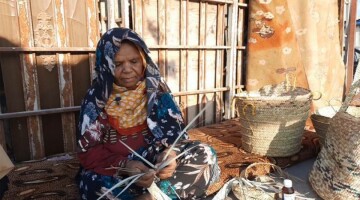
Xezala struggles for life away from her home
Xezala Al Tormi is one of the thousands of people forcibly displaced from their town Tawergha. She lives in the Benghazi city of Libya as a migrant and makes a living by baking tandoor bread.
-
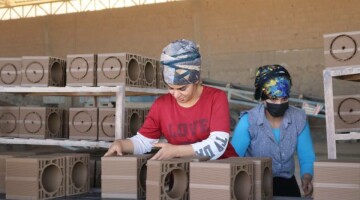
Women working in brick factory overcome difficulties with “Morale”
People, who have difficulty in meeting their needs due to the high price of electricity, water, natural gas, food, and clothing, have faced more difficulties due to tax increases. Women, who work informally below the minimum wage in a brick factory located in Amed, have no other alternative but to keep working. The women try to forget the difficulties they have faced with friendship.
-
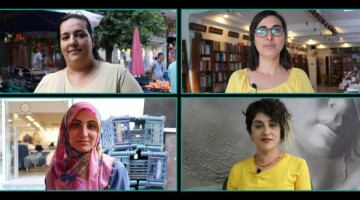
Economic crisis keeps women awake at night
Citizens in Amed say they cannot make a living anymore due to the increasingly high prices of food and bills. Some cannot pay their rent, some are thinking about how to enroll their children in school, and some haven’t taken any fruit to their house for two years. We spoke to female shopkeepers and consumers, who say the economic crisis keeps them awake at night.
-
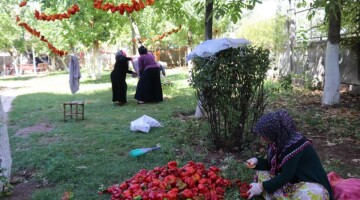
Collective work from women of Amed to make red pepper paste
Preparation for winter of women in Amed continues. The women have worked collectively to make red pepper and tomato paste for winter.
-
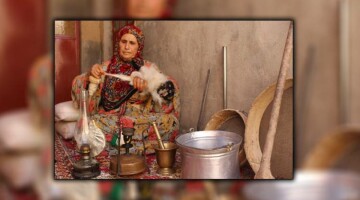
Healthy life tips from Rifa who keeps culture of distaff alive
Women still keep the culture of the distaff, a traditional tool used in spinning thread, alive. 61-year-old Rifa Eli Hesen is one of these women. She spoke to our news agency about the benefits of the wool-filled quilts she made for human health.
-
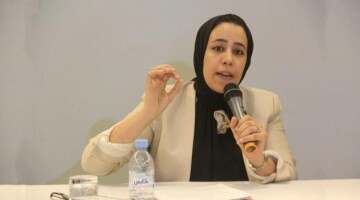
Increasing unemployment rate in Morocco affects women
After graduating from university, women face unemployment in Morocco. Most female university graduates cannot find work in their field so they work in other fields. Khadija Al-Ghazi, professor at Faculty of Law in Fes city of Morocco, spoke to NuJinha about the reasons why women cannot find a job in Morocco. “Women should be empowered,” she said.
-
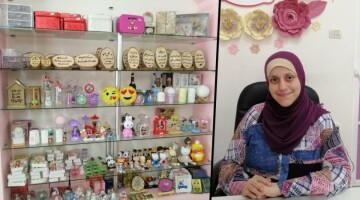
Dina Abu Shaaban stands on her own by selling gifts in Gaza
Dina Abu Shaaban, who opened a gift store named, “مناسبات (Occasions)” in Gaza, wants to expand her team. “Women should learn everything about the market well before starting a project,” Dina Abu Shaaban said.
